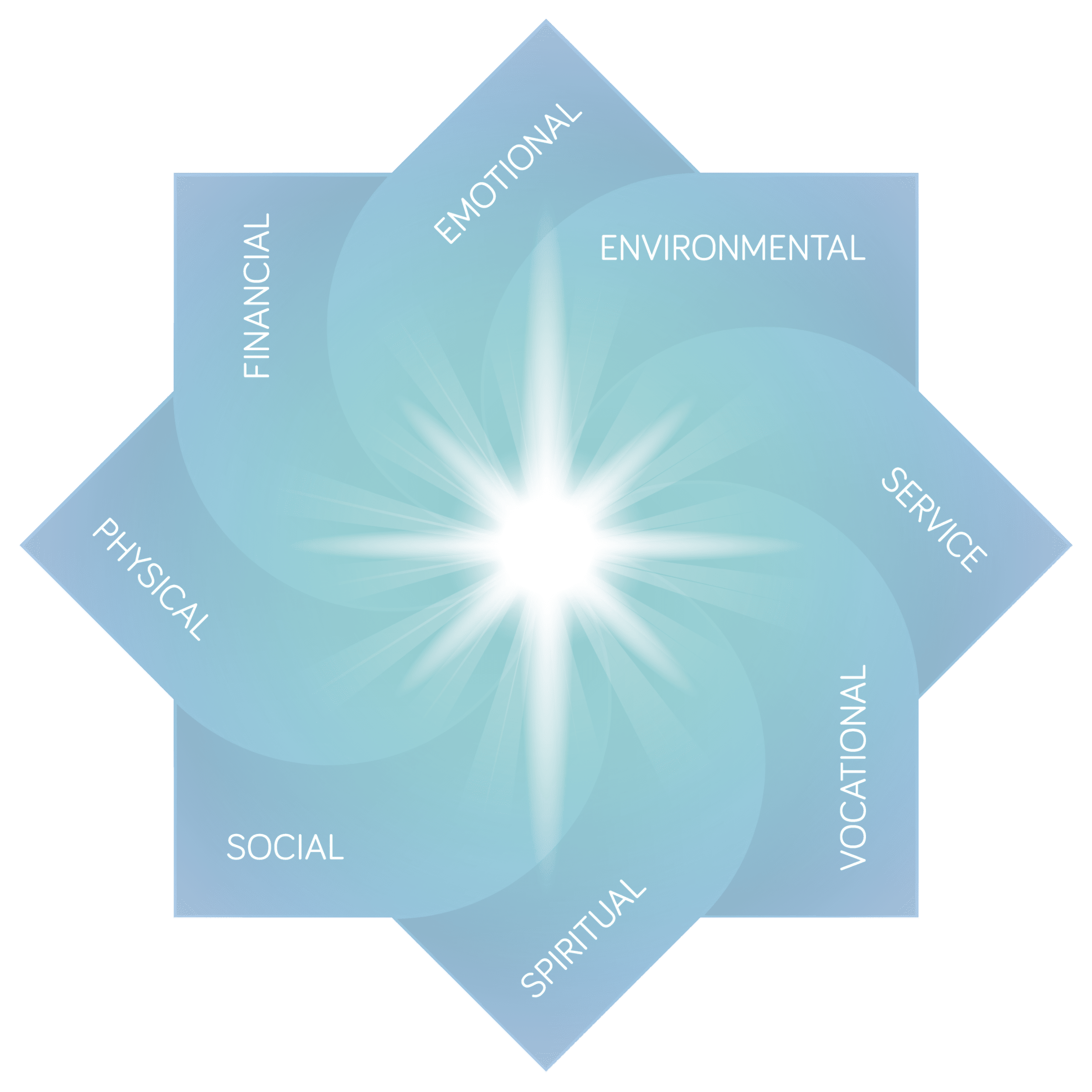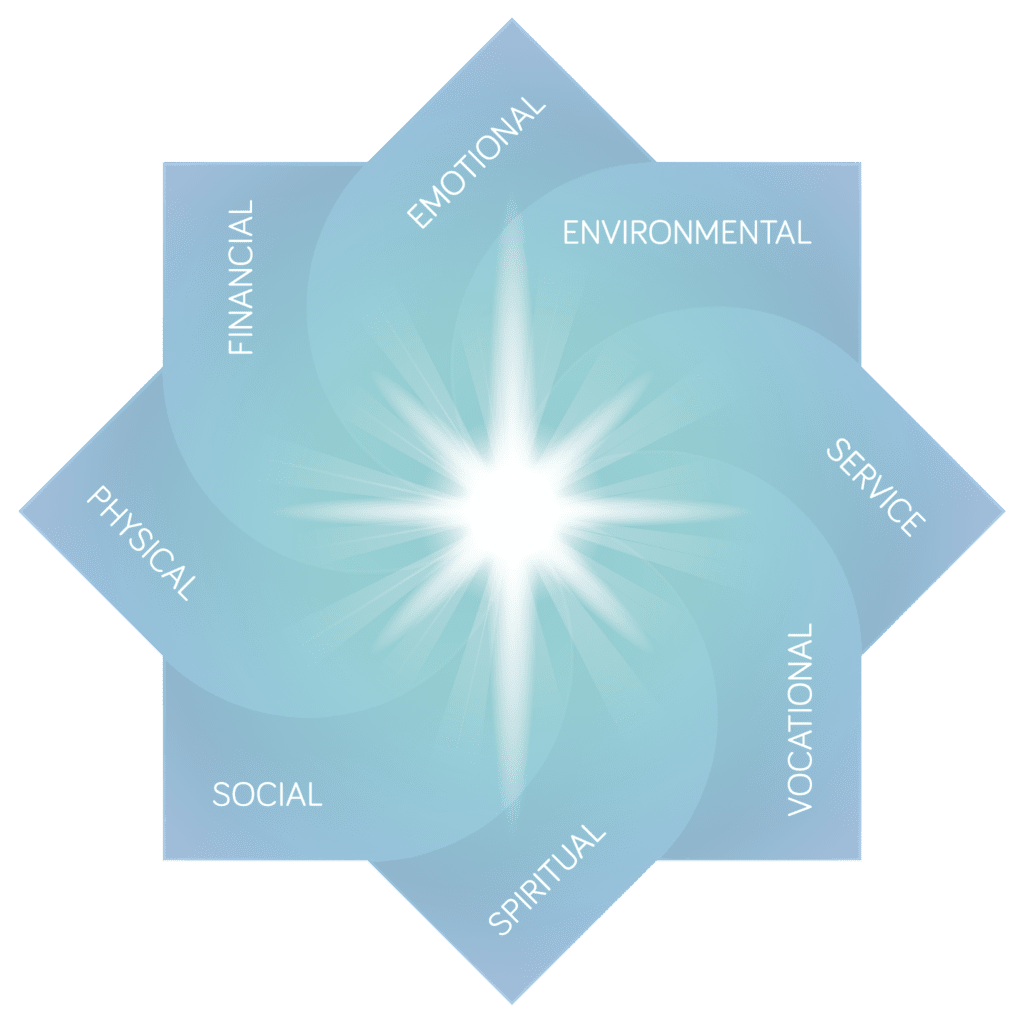
Meinc Wellbeing

MeInc Wellbeing
Well-being is an integrated approach – it is Mind/Body, which are not as separate as we are led to believe. The MeInc Well-Being Model demonstrates the interrelatedness of the components making up holistic health. That is why addressing changes to any part of this model can positively impact other key parts of your life. For example, better sleep can contribute to weight loss, emotional health, and long-term health outcomes.
Physical Well-Being
The Physical pillar is loaded – it’s the food choices we make, exposure to alcohol and substances, the sleep we get, physical activity, our current weight, blood profile, and so much more. Our lifestyle choices heavily drive our physical well-being. It is essential to highlight that our DNA is not our destiny, but our daily choices play a much bigger part in our health outcomes.Emotional Well-Being
Emotional well-being isn’t about setting the expectation of always feeling happy, nor is it the denial of how we feel when we face adversity. Emotional well-being is having a strong sense of self, with the ability to handle life’s stresses and adapt to change. The quality of our emotional well-being impacts our ability to thrive in all aspects of our life that are described in the MeInc Well-being model.Social Well-Being
Meaningful connections are a significant pillar for our well-being. We all need to feel supported, validated, and valued. Isolation, as many of us experienced recently during the covid pandemic, is tracking quickly up the list to being a significant factor not only in the reduction of the health span of an individual but, in fact, their total lifespan. We don’t do well on our own long-term, so developing key social intelligence skills is the pathway to maintaining meaningful connections with others.Environmental Well-Being
Does where we live support our well-being? Our physical environment impacts our health. Air quality, safety, noise levels, sunlight, and access to exercise all help frame our mindset and ability to function well. We must also recognise the importance of living in a symbiotic relationship with our planet whom we rely on for food, shelter, clean water, and sunlight.Service Well-Being
We are not an island; we are all interconnected. Service or “giving back” is about giving your resources freely, whether in the currency of time or money, acts of service that enable you to have a meaningful impact, support and build communities, and exchange expertise and ideas. Some studies have shown that giving is beneficial for combating stress, depression, and anxiety and serves to keep you mentally stimulated, improve your self-confidence and provide you with a sense of purpose.Financial Well-Being
Financial stress seems to be a prevalent cause of many 3 am wake-up calls. Fear of economic vulnerability keeps us in jobs we don’t like, unhealthy relationships, and even environments that detract from our well-being. Not having any plan or structure can also drive a sense of despair, creating a downward spiral into the vortex of behaviours that diminish our well-being.Vocational Well-Being
While we can all maintain ourselves in a job for fixed periods to fit a purpose, if what we do for work is not aligned with our core values or provide a real sense of purpose, we expose ourselves to being out of integrity and additional stress. At a bare minimum, our work should fulfil the paradigm of feeling valued and enable us to add value.Spiritual Well-Being
Incorporating a spiritual practice isn’t the “woo woo” people fear. It is simply the practice of getting to know yourself, developing self-compassion, and recognising the essential need for space and introspection rather than stumbling or racing from one crisis to another.
Having a spiritual practice in your life is a powerful tool for well-being. We meet people all the time, why wouldn’t you want to meet yourself?Would you like to understand more about how addressing each of these pillars of the MeIncWell-Being Model can help you facilitate change in your life?
